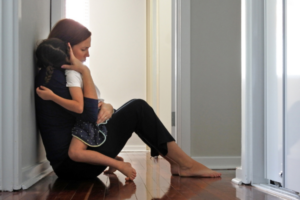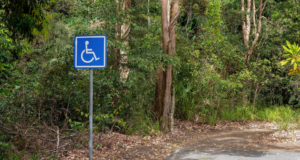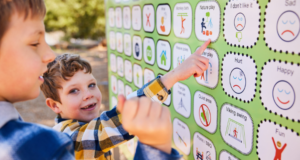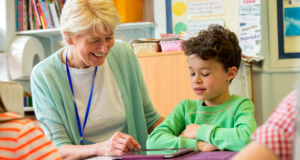How to support your child without a disability
Siblings have a special relationship. They may share a lot in common or be very different from one another, but their bond is often powerful.
When a child is born with a disability, the entire family feels the impact. Being the brother or sister of a child with a disability can be life-altering.
This article will talk about the impacts of having a sibling with a disability or chronic illness, the upsides, and the challenges. We’ll also provide valuable links to information and support to help you and your family.
How many Aussie kids have a sibling with a disability?
It isn’t easy to estimate how many Australian children have a sibling living with a disability.
As of September 2021, the National Disability Insurance Scheme (NDIS) had more than 238,160 registered participants aged 0 to 18.
While there is no precise data available, we can assume that many of these children and young people have one or more siblings without disabilities.
Having a sibling with a disability isn’t a bad thing.
Many kids and teens who have a sibling with a disability enjoy happy, fulfilling relationships with their brothers and sisters.
Often these children are caring and kind. As they grow up, they become sensitive to the needs of others and more tolerant of people’s differences, whatever they may be.
Many special needs parents need to rely on their typically developing kids for help caring for their siblings. In many cases, this extra responsibility leads to the sibling growing as mature, responsible, independent and empathetic later on in life.
They’re also more likely to value and appreciate their good health.
It can be a challenge to have a brother or sister with a disability
Children and young people who have a disabled or unwell sibling often face challenges that their friends don’t. Issues can be different for each sibling and can be affected by age, gender, location, health, biological connection and family dynamics.
Sibling challenges commonly include:
- Loneliness
- Sibling rivalry
- Bullying by peers
- Social stigma
- Self-esteem and inadequacy
- Emotional issues
- Money issues
- Social isolation
- Behavioural issues
- Developmental delays
- Poorer health and wellbeing
A 2017 mapping project by Siblings Australia found that stress and anxiety were common to experience for siblings during their childhood and into adulthood.
The survey found:
- Eighty-four per cent of adult siblings reported family stress during their childhood
- Sixty-six per cent of adult siblings reported anxiety during childhood
- Fifty-four per cent of adult siblings reported depression during childhood
- Seventy-three per cent of parents identified family stress as an issue for young siblings.
- Fifty-nine per cent of parents identified anxiety among their children without disabilities.
At the same time, parents may be stretched practically, emotionally and financially and not be in the right place to recognise the needs of their children who live without disabilities.
Some children may even hide their difficulties from their parents to spare them from extra worry.
For parents who identify their child as struggling, searching for how best to support them can be difficult and frustrating.
How can I support my child?
So, how can you help your child without a disability with some of the challenges they face? One way is to understand how they may be feeling?
Big emotions are common – positive and negative
It can be tough for a typically developing child to have a sibling with a disability – both positive and negative feelings are common.
Siblings without disabilities can express negative thoughts and feelings about having a brother or sister with a disability. For example, some siblings express anger toward their brother or sister for being different.
Negative emotions such as resentment, jealousy, and sadness are also common. Many siblings also have feelings of shame, guilt, and inadequacy.
Siblings can also express positive feelings toward their sibling with a disability. They might feel proud or happy they have a sibling with a disability, while others may be envious of that sibling’s special skills or abilities.
These feelings are common, but it’s essential to address them. Being aware of, and accepting, negative emotions and showing empathy can help siblings build stronger relationships with their sibling with a disability.
Talk with your typically developing child about how they feel about the sibling with a disability. Reassure your child that their feelings are entirely normal -it’s okay to feel that way.
If you feel your child’s negative feelings are getting in the way of positive interactions, consider talking to a counsellor, teacher or therapist about handling those feelings.
Where can I get support?
Unfortunately, siblings of a child with a disability do not fall into the disability or ‘at-risk’ categories; they can slip through the gaps. However, the good news is that this gap is being recognised, and services are starting to focus more on the needs of siblings.
Several support organisations can provide information and assistance.
RaisingChildren.net.au have information on supporting siblings of children with disability.
Siblings Australia Inc. is committed to improving the support available for siblings of children and adults with chronic conditions, including disability, chronic illness and mental health issues.
My Time is another organisation that provides free support for parents of children with disabilities.
How do we support kids with a brother or sister with a disability?
Being part of a family that cares for a person with a disability can be challenging. Lifely recognises this and has developed programs to support siblings and families living in the Loddon-Mallee region.
Sibling Social Group
Lifely Sibling Social Groups allow kids and teens to make friends with others who face similar challenges and understand what they’re through.
Events are held monthly in Bendigo, Castlemaine, Swan Hill and Mildura. They are available for kids and teens aged 6 – 18 who live with a person with a disability. Activities may include bowling, meals out, shopping, cooking, outdoor games.
Find out more about our sibling social groups.
Supported Playgroups
We run a supported playgroup for preschool-aged children to families living in the Mildura and Bendigo regions. The playgroups are held fortnightly and are open to people who have a child with a disability or is going through a diagnosis.
Qualified and caring Community Facilitators provide a safe and stimulating environment to encourage play and socialisation with other preschool-aged children.
Parents often choose to use this time to enjoy some respite or devote some one-on-one time to their other children.
Learn more about our supported playgroups.
Family getaways and sibling camps
From time to time, we offer camps and getaways for families who have a family member, or members, with a disability.
In the past, families have enjoyed a three day, two-night camp where they participated in camp-based bonding activities and games where they can work together to achieve tasks, network with other families, have fun and build on their family relationships.
The children living with disabilities were fully supported by qualified and caring Lifely staff to ensure uninterrupted participation in the planned activities.
Government HACC funding often supports these programs to ensure they are affordable for families to participate in and benefit from.
Check out our latest holidays and getaways. Please note that the COVID-19 pandemic has put a temporary hold on all getaways.
If you are interested in any of the above programs, don’t hesitate to get in touch with us today.




